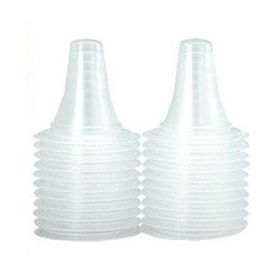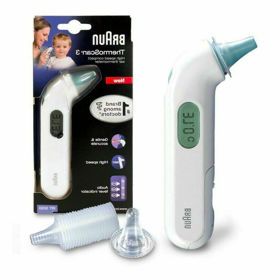Customer question:
How is the otorhinolaryngological examination performed? Anonymous customer's question
Pharmacist's answer:
An otolaryngology exam is a medical evaluation that focuses on the ears, nose, and throat. The examination often begins with a doctor or specialist taking a detailed look at your medical history. You will be asked about your symptoms, any previous health problems, allergies, medications you are taking, and your family's medical history.
The doctor will use an otoscope to examine the outer ear and ear canal. They will check for any signs of infection, earwax buildup, or other abnormalities. Your doctor can use a speculum to look into your nostrils and evaluate your nasal passages for any problems, such as nasal congestion, polyps, or structural abnormalities. He will also use a tongue depressor and light source to examine your throat, tonsils, and the back of your mouth.
In some cases, an endoscope can be used for a more detailed examination of the nasal passages and pharynx. This thin, flexible tube with a camera is inserted through the nose or mouth to allow a closer look at the structures in that area. This is particularly useful in diagnosing conditions such as sinusitis or laryngitis.
If hearing problems are a concern, your doctor may perform a hearing test, including an audiogram or other hearing evaluation techniques. Depending on your symptoms and findings during a physical exam, your doctor may recommend additional tests, such as imaging studies (such as a CT scan or MRI) or allergy testing.
Based on the examination results and any additional tests, the specialist will make a diagnosis and discuss treatment options. Treatment may include medication, surgery, lifestyle changes, or other therapeutic measures.
It is essential to know that the otorhinolaryngological examination can vary depending on the specific symptoms and symptoms of the patient. The specialist will adapt the examination to the needs of the individual. If you have problems related to your ears, nose, or throat, you must seek the expertise of a qualified specialist for a thorough evaluation and appropriate care.
Is an otolaryngological examination painful?
An otolaryngological examination is usually not painful. The review is designed to be thorough and informative. In general, discomfort during an otolaryngology examination is minimal, and the benefits of a precise diagnosis and appropriate treatment plan for any ear, nose, or throat problems outweigh any mild discomfort. It is essential that if you feel any significant discomfort or pain during the examination, you inform the examiner about this, and they can, if necessary, adjust the performance to ensure your comfort.
Which diseases does an otolaryngologist treat?
Otolaryngologists diagnose and treat various medical conditions and diseases related to the head and neck. Some common diseases and conditions treated by otolaryngologists include:
- Ear conditions: ear infections (otitis media), hearing loss, tinnitus (ringing in the ears), balance disorders, earwax impaction, eardrum perforations, Meniere's disease.
- Diseases of the nose and sinuses: inflammation of the sinuses, allergic rhinitis, deviated septum, nasal polyps, nasal congestion, disorders of smell and taste.
- Diseases of the throat and voice: tonsillitis, sore throat, speech disorders, laryngitis, nodules or polyps on the vocal cords, gastroesophageal reflux disease (GERD) affecting the throat, and swallowing disorders.
- Diseases of the head and neck: head and neck cancer (including throat cancer and thyroid cancer), salivary gland disorders, facial injuries and fractures, temporomandibular joint disease, and parotid gland problems.
- Pediatric ENT conditions: recurrent ear infections, sleep apnea and snoring in children, speech and language development problems, congenital ear and throat anomalies.
- Sleep disorders: sleep apnea, snoring, insomnia associated with ENT problems.
- Allergies: Otorhinolaryngologists can also diagnose and treat allergies, especially those that manifest in the ear, nose, or throat.
- Cosmetic and reconstructive surgery: Otorhinolaryngologists often perform cosmetic and reconstructive procedures such as rhinoplasty (nose surgery), otoplasty (ear surgery), and facelifts to improve the appearance of the face and neck.
- Facial Plastic and Reconstructive Surgery: Otorhinolaryngologists with specialized training in facial plastic surgery can perform various surgical and non-surgical procedures to improve facial aesthetics and correct facial trauma or deformities.
Interesting reading: Otolaryngologist












 Facebook
Facebook
 Instagram
Instagram
 info@moja-lekarna.com
info@moja-lekarna.com

